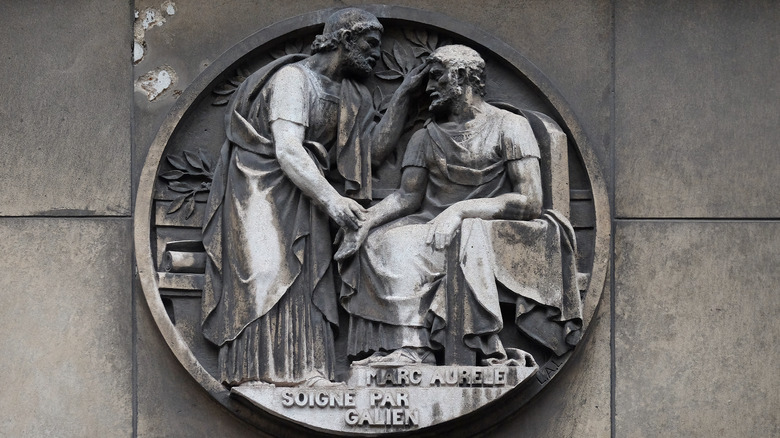The Strict Cappuccino Rule To Keep In Mind On Your Next Trip To Italy
Italians love their coffee culture. Espresso, popularized in Italy after WWII by the growing availability and accessibility of espresso machines, has become a source of pride. Today, Italians most often drink espresso at home — some even indulge two to three times a day — but whether at home or in the cafe, their beverages have special rituals and traditions that go hand-in-hand with imbibing. This convention has become something of a national rule that easily distinguishes Italians from tourists. It also has to do with the cappuccino and its indispensable ingredient, milk.
Cappuccinos were named because of their similarity in appearance to Capuchin friars. These Franciscans wore long brown hoods and had distinctive haircuts, leaving a round ring of hair around the hairline and the rest of the scalp bald. The contrast between the hood and the skin is said to have reminded people of the coffee beverage.
In Italy, the cappuccino coffee beverage is made with equal parts espresso and milk, topped with foam, but only enjoyed at a certain time of day and for a good reason.
Dairy and digestion
The true Italian would only take a cappuccino for breakfast. Anything after about 11 a.m. would be considered odd — kind of like ordering cereal for lunch, maybe. Or maybe worse. While Italians might order an espresso much later, the combination of espresso and milk in an after-lunch or after-dinner drink is the mark of an outsider. The reasons why are essentially Italian as well.
Digestion is a central part of the Italian approach to food and health. With a country on the Meditteranean and thereby often touted as the model to emulate for vitality and longevity, there may be something to that. Loads of specially formulated elixirs and beverages exist to aid and promote digestion in Italy, more so than in any other country, even. And while aperitifs and digestives can help according to the Italian diet, one should not tempt fate by drinking a cappuccino after the morning.
Specifically, milk would disturb digestion, it is said, if consumed so late. Historical roots may tell us why that attitude prevails to this day.
Medieval thought and a cappuccino
The Greek physician Galen who worked during the Roman times was an influential writer who theorized on food as medicine. He served a few Roman emperors, including Marcus Aurelius, and he created a philosophy of food that prioritized both digestion and the correct balance of humors. In the Middle Ages when his works became popular once again, his views of food may have swayed Italian cooks and ideas of digestion.
Galen saw milk as dangerous, especially to the liver and the kidneys. He also saw the stomach as another means of cooking food, so good health meant taking this into account. Milk came to be seen as somewhat healthy and somewhat dangerous, and one danger was that it would rot inside the body, cooking in the stomach. Milk taken with other foods would have more time to spoil in the stomach which could cause those liver and kidney problems, went the reasoning. Thus, to this day, Italians often enjoy their cappuccinos only in the morning alone or with a very small pastry.
Medieval science has been roundly debunked, of course. Take your coffee how you like it. Just remember that your cappuccino, latte, or macchiato may horrify someone's sense of Medieval propriety, and the strict unwritten rule you should keep in mind on your next trip to Italy.


